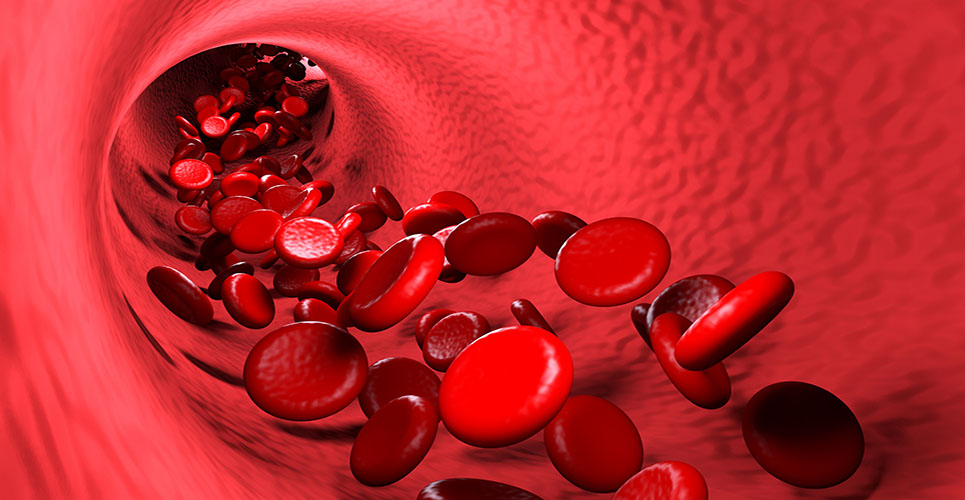teaser
Bayer HealthCare’s oral anticoagulant tablet Xarelto® (rivaroxaban) has been recommended in draft final guidance by the National Institute for Health and Clinical Excellence (NICE) as a single-drug therapy for the treatment of deep vein thrombosis (DVT) and prevention of recurrent deep vein thrombosis and pulmonary embolism (PE) after a diagnosis of acute deep vein thrombosis in adults.
The current standard of care for the treatment of DVT includes a dual drug approach of low molecular weight heparin (LMWH) administered by subcutaneous injection, followed by a vitamin K antagonist such as warfarin.
The draft NICE Final Appraisal Determination (FAD), made available today in advance of the publication of final guidance, states:
- Rivaroxaban is recommended as an option for treating deep vein thrombosis and preventing recurrent deep vein thrombosis and pulmonary embolism after a diagnosis of acute deep vein thrombosis in adults.
“The simplification of venous blood clot treatment is an important clinical goal and rivaroxaban has the potential to offer that simplicity,” said Dr Gerry Dolan, Consultant Haematologist, Department of Haematology, Nottingham University Hospital.
“The current dual standard of care in DVT is effective when controlled, but presents numerous challenges and drawbacks including injection site problems and the complication of a dual regimen.
“Today’s draft guidance from NICE is recognition that an effective, well-tolerated and fixed dose regimen which can be initiated rapidly is welcome news for physicians and their patients.”
DVT presents a major health challenge to the NHS. If left untreated, DVT blood clots can break and travel toward the lungs, causing a pulmonary embolism (PE) which can be rapidly fatal. This makes the initial treatment and secondary prevention of DVT vitally important.
Statistics show that in 2010/11, there were over 35,000 symptomatic DVTs treated in hospital with a further 35,000 PEs. This potentially life threatening condition is also a major cause of morbidity with over 60% of patients with proximal symptomatic DVT developing post thrombotic syndrome. The total cost to the NHS (direct and indirect) of managing DVT and PE is estimated to be £640 million.
The guidance follows a close review by NICE of the Phase III EINSTEIN-DVT study, which demonstrated rivaroxaban to be an effective DVT treatment, with a favourable safety profile compared to the current standard dual therapy.
In EINSTEIN-DVT, rivaroxaban delivered a statistically significantly improved net clinical benefit (a pre-specified outcome defined as the composite of the primary efficacy outcome plus major bleeding, and a standard measure for anticoagulation clinical trials), compared to standard therapy (2.9% vs 4.2%, respectively, p=0.03), as well as a numerically lower rate of major bleeds.
In an additional study, EINSTEIN-EXT, rivaroxaban demonstrated a highly statistically significant risk reduction in the incidence of venous thrombosis following longer-term therapy to prevent recurrence of venous blood clots in comparison to placebo.5
Xarelto, the first and only non-VKA oral anticoagulant to be recommended by NICE as a cost-effective DVT treatment option, is the first in a class of drugs known as Factor Xa inhibitors, which act at a critical point in the blood-clotting process to prevent the formation of clots.
The features of oral Factor Xa inhibitors include no routine anticoagulation monitoring, predictable effects and a lower risk of drug–drug or food interactions by comparison to warfarin.
Xarelto is the first oral Factor Xa inhibitor to be licensed for use in three indications – the treatment of deep vein thrombosis (DVT) and prevention of recurrent DVT and pulmonary embolism (PE), the prevention of stroke and non-CNS systemic embolism in eligible adult patients with non-valvular atrial fibrillation, and the prevention of venous thromboembolism in patients recovering from elective hip or knee replacement surgery.
National Institute for Health and Clinical Excellence

